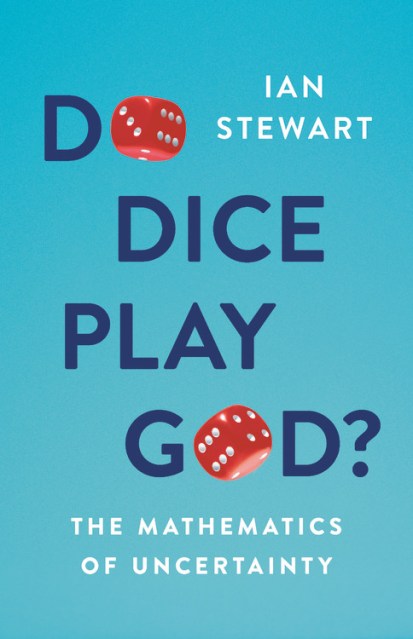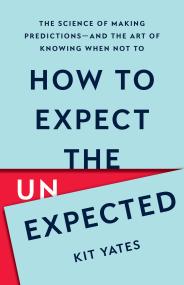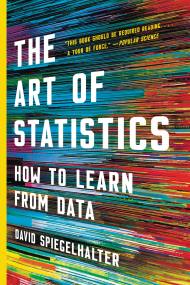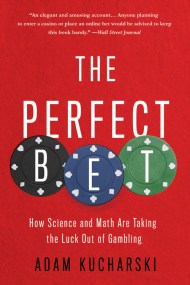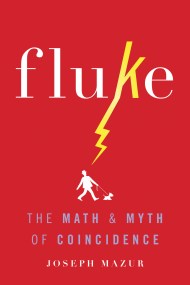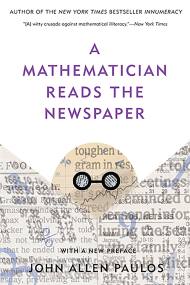Do Dice Play God?
The Mathematics of Uncertainty
Contributors
By Ian Stewart
Buy from Other Retailers:
- On Sale
- Sep 3, 2019
- Page Count
- 304 pages
- Publisher
- Basic Books
- ISBN-13
- 9781541699472
A celebrated mathematician explores how math helps us make sense of the unpredictable
We would like to believe we can know things for certain. We want to be able to figure out who will win an election, if the stock market will crash, or if a suspect definitely committed a crime. But the odds are not in our favor. Life is full of uncertainty — indeed, scientific advances indicate that the universe might be fundamentally inexact — and humans are terrible at guessing. When asked to predict the outcome of a chance event, we are almost always wrong.
Thankfully, there is hope. As award-winning mathematician Ian Stewart reveals, over the course of history, mathematics has given us some of the tools we need to better manage the uncertainty that pervades our lives. From forecasting, to medical research, to figuring out how to win Let’s Make a Deal, Do Dice Play God? is a surprising and satisfying tour of what we can know, and what we never will.
-
"[A] fascinating look at chaos theory and the uncertainties of the quantum universe.... Readers interested in whether Schrödinger's famous cat is actually dead or alive, or how uncertain Heisenberg's uncertainty principle really is, will find in Stewart's survey a challenging but rewarding trip through a quantum world of uncertainties."Publishers Weekly
-
"A definitely-not-dumbed-down exploration of predicting outcomes, whether of an election, card game, medical test, or weather front...every reader will encounter gems and jolts in this expert analysis of probability."Kirkus Reviews
-
"As Stewart so ably demonstrates, uncertainly is the very stuff of life.... A lot here to enjoy and chew on -- especially in the sidelong glances at climate change denial and lawyers' misuses of statistics."The Telegraph
-
"[An] engaging history of the mathematics of uncertainty.... Stewart, a mathematics professor, is at his best when romping through the cutting edge of the discipline."The Times (UK)
-
"[Stewart] probes the connection between quantum entanglement and communication, with interesting excursions into the history of mathematics, gambling, and science."Nature
-
"Life is full of uncertainty, but as Ian Stewart shows in this fascinating new book, humanity is endlessly striving to anticipate the future. Stewart brilliantly explores the exhilarating milestones and frustrating limits in our quest to map out the shape of things to come, from the challenges of weather and climate forecasting to the frontiers of modern physics. An extraordinary overview of the challenges of forecasting in a universe built on randomness."Paul Halpern, author of The Quantum Labyrinth
-
"In an era of soundbites, bold certainty grabs more attention, but ignoring uncertainty doesn't make it go away. In this wide-ranging tour, Ian Stewart gives us a much needed antidote to the plague of fabricated black-and-white arguments: instead of pretending to be certain when we can't be, we can understand and rationalize uncertainty, using the tools of mathematics."Eugenia Cheng, author of How to Bake Pi
-
"A richly insightful book, instilled with Stewart's brilliance, wit, and knowledge of history. Do Dice Play God? skillfully imparts an easily accessible mathematical frame for appreciating how it is possible to predict future affairs of the universe with virtual certainty as they pass in time through formidable gauntlets of uncertainty."Joseph Mazur, author of Fluke: The Math and Myth of Coincidence
Formats and Prices
Price
$28.00Price
$35.00 CADFormat
Format:
- Hardcover $28.00 $35.00 CAD
- ebook $17.99 $22.99 CAD
- Audiobook Download (Unabridged)
